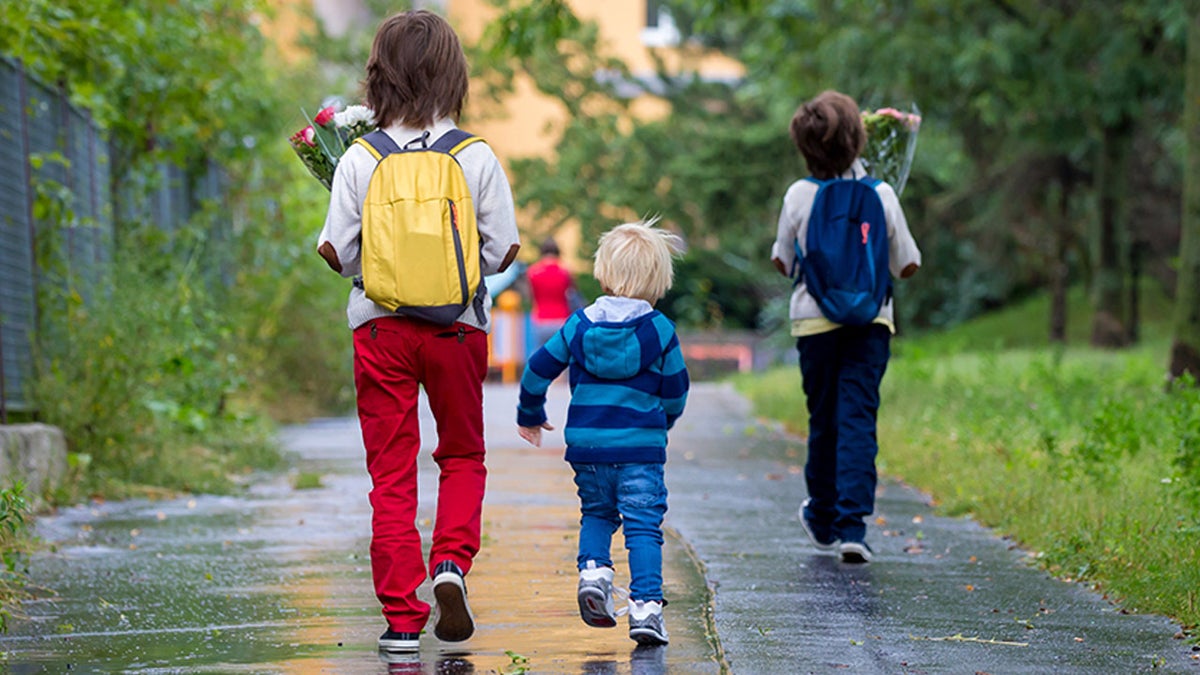Israeli shares emotional story of fallen soldier: ‘A champion of Israel’
‘America Reports’ co-host John Roberts speaks with Brothers and Sisters in Arms leader Noam Lanir about how Israelis are rallying together to defeat Hamas.
As parents and caregivers across America strive to keep an even keel in their households no matter what is going on in the outside world, many wonder how, if at all, they should talk to their children about the war that's gripped Israel since Oct. 7.
Fox News Digital reached out to Dr. Meg Meeker, a Minnesota-based pediatrician, author and creator of the "Parenting Great Kids" podcast, for advice and counsel.
Today, amid the war in Israel, is a time to "keep kids calm," advised the doctor, who is also a mother herself.
She said that throughout her long career in caring for children, "I've had to talk with kids of all ages — or coach parents — about war or national tragedies."
Here is some of the advice for parents given the unfolding events in the Middle East.

A daughter holds her mother's hands while having heart-to-heart talk. (iStock)
Consider the age of the child
If a child is younger than age 7 or 8, don't say anything about the war in Israel unless the child asks, advised Dr. Meeker.
"Kids can't process issues that are this complex — and they begin to worry that their mom or dad might die," she said.
She said it's important overall that parents remember this: "Kids don’t see through adult lenses. They are more sensitive and when they see trauma, blood, burning buildings and hear about people or kids being tortured, they are shocked. Their minds tell them that this can’t be real because the people in their neighborhoods are nice. Then they become confused."
She added, "At the same time they feel shock, they feel confusion — and they rationalize in their minds that someone must be wrong, the TV or their neighborhood. They want to think the latter, as that works better for them and makes them feel safe."
20 SURPRISING TIPS THAT ADULTS WITH THEY COULD TELL THEIR YOUNGER SELVES
Yet then "they feel afraid," added Dr. Meeker. "They think, ‘Is it going to happen to me? What if someone tries to steal me and do bad things to me? What if they take me away from my mom and dad?’ Then terror sets in and they can’t sleep. They become anxious, agitated, yell at their siblings, can’t do their homework — just act up. Why? Because they feel helpless, too, but have no way to process that helplessness and fear."
And this "is why they need their parents" to watch over them — and be there for them.
Keep the dialogue simple
If a child is roughly ages 8 to 11, he or she will probably hear about what's going on from the news or at school, "so you may need to have a discussion," Dr. Meeker said.
Her suggestions for the discussion that does take place are direct.
"When kids see war scenes or hear about war repeatedly, they are traumatized," said Dr. Meeker.
"Keep the dialogue very simple," said Dr. Meeker. "State who is fighting whom and (very basically) why."
She noted, "Many parents fall into the trap of overspeaking — of giving too much information that kids can't handle or understand. So reassure them that the war will not come here — again, they worry about their lives and their parents' lives more than the lives of others fighting."

If a child is younger than age 7 or 8, don't say anything about the war unless the child asks, advised a longtime pediatrician and parenting expert. "Kids can't process issues that are this complex — and they begin to worry that their mom or dad might die." (iStock)
Added Dr. Meeker, "Tell them that wars have been fought for many years. If they ask questions, answer the questions but keep it simple. Remember, they can't process complex situations as adults can."
Limit the news exposure for kids
"When kids see war scenes or hear about war repeatedly, they are traumatized," said Dr. Meeker.
The situation can also be magnified in their minds, she said.

Explain what is happening but only if the children are old enough to understand (preteen to teen years). If they're interested in political details, tell them — but don't force it. (iStock)
Explain what is happening if the children are old enough to understand (preteen to teen years).
If they're interested in political details, tell them — but don't force it.
YELLING AT KIDS COULD CAUSE LONG-TERM HARM TO THEIR PSYCHES, SAYS NEW STUDY
"Even though they can understand more than youngsters, they still worry," said Dr. Meeker.
"So reassure them that now, this is not a war that will affect them. If it does later on, you'll deal with it then," she said.
She advised being very cognizant of what kids are seeing on TV or on social media — and taking strong steps to restrict it for their well-being.
Avoid political or divisive discussion
The reason for this advice?
CLICK HERE TO SIGN UP FOR OUR LIFESTYLE NEWSLETTER
"They will go to school and parrot what their parents say about the president, the administration, Congress, what have you — and this will cause division no matter how old they are," she advised.

Most of all, reassure the children, said Dr. Meeker, "that everything will be OK for them and their families." (iStock )
Keep the kids calm
Now is the time, she urged, to keep children calm.
Most of all, "reassure them that everything will be OK for them and their families," said Meeker.
Also tell them, she said, that "it’s normal to be scared. But remember, these things are not going to happen to you so when you feel afraid, come tell me."
CLICK HERE TO GET THE FOX NEWS APP
She added, "Do not say to your kids, ‘Life is really hard and you need to realize that bad people come here and may try to kill you or your friends at school.’ This is wrong for two reasons: It’s highly unlikely that this will happen and you’re scaring your child needlessly — and there isn’t one thing that your child can do about it!"
Anyone seeking more of her advice can visit meekerparenting.com.
For more Lifestyle articles, visit www.foxnews.com/lifestyle.










































